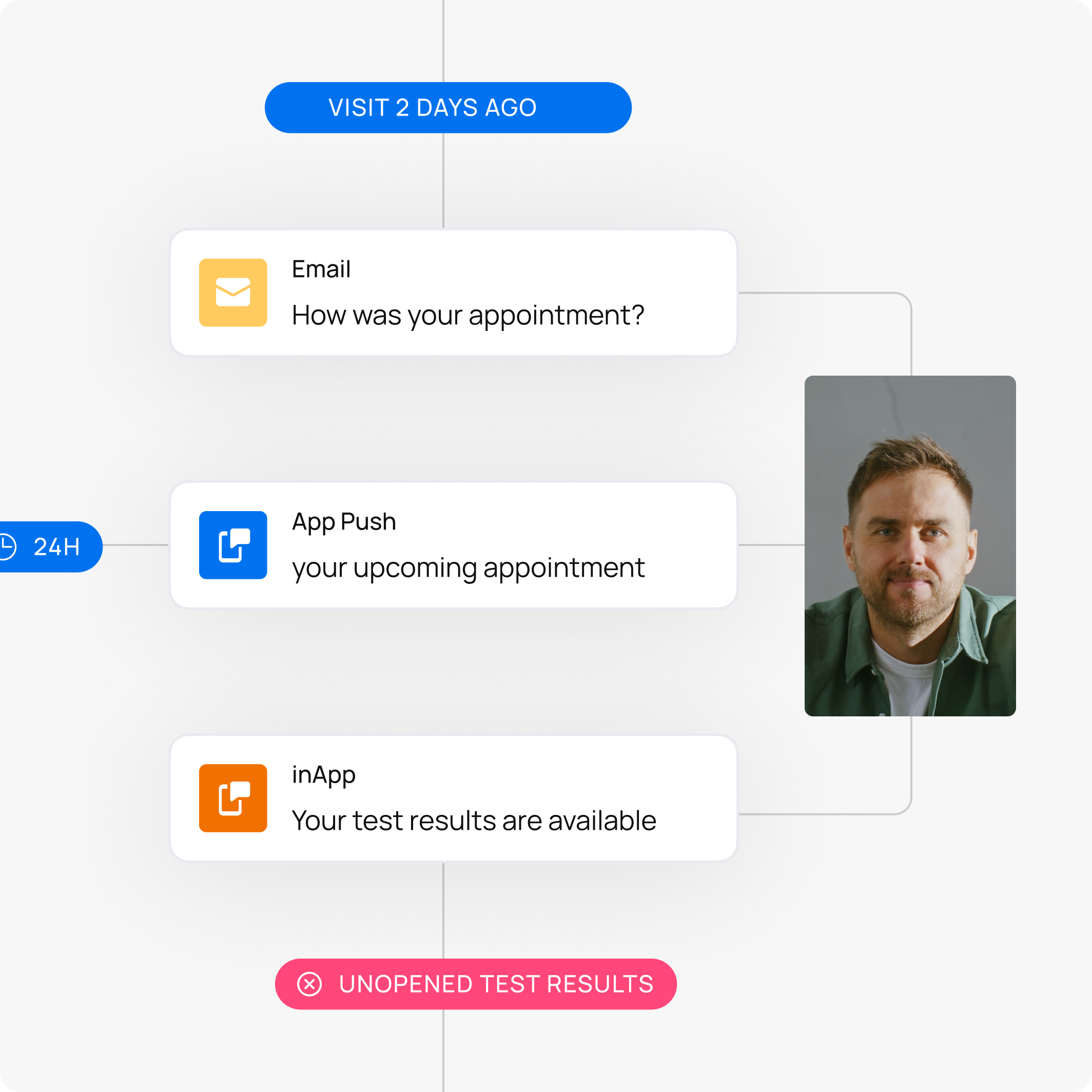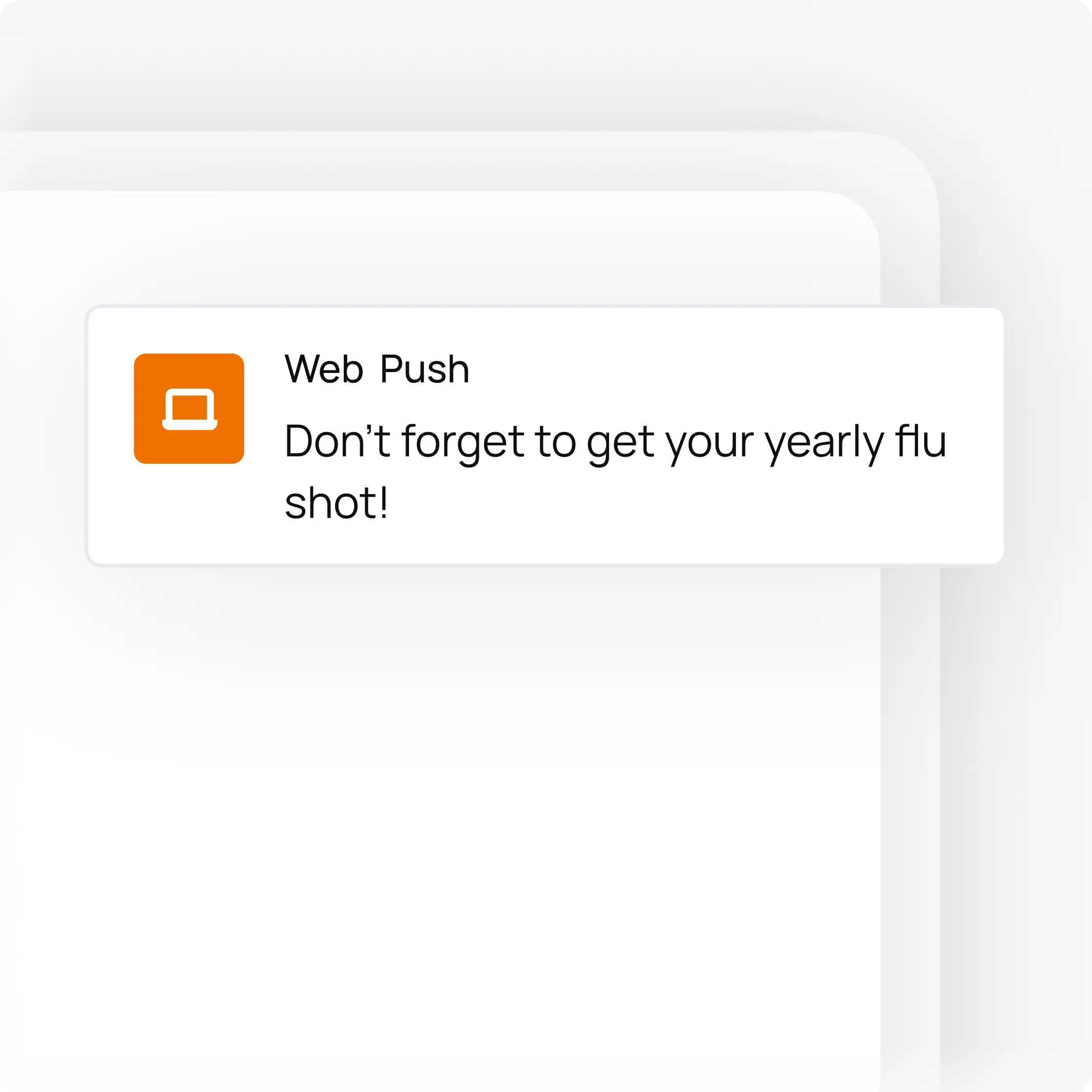No-Shows, Non-Adherence, and Burnout: 3 Digital Prescriptions for a Healthier Practice


The healthcare industry is at a critical juncture. Providers are facing immense pressure from rising operational costs and widespread staff burnout, while modern patients arrive with consumer-level expectations. They want convenience, instant communication, and a sense of being personally cared for, both inside and outside the clinic.
Meeting these demands while maintaining high-quality care is the central challenge of our time. This requires a strategic shift from traditional, reactive processes to a proactive, technology-driven approach that supports both patients and staff. This article explores three core strategies that are proving effective in building a more efficient and patient-centric healthcare experience.
Strategy 1: Moving Beyond Phone Calls to Reduce No-Shows
Empty appointment slots are more than just an inconvenience; they represent lost revenue, wasted clinician time, and disruptions in patient care continuity. Appointment no-show rates are a persistent problem across the industry, with some reports indicating they can reach as high as 40% in certain specialties (Source: Cureus Journal of Medical Science). Traditional phone call reminders are labor-intensive and increasingly ineffective in an era where many people ignore unknown numbers.
The most effective strategy is a proactive, multi-channel communication system. By engaging patients on the channels they use daily—like SMS and push notifications—providers can automate appointment confirmations and reminders. This not only dramatically improves the chances of a patient remembering their appointment but also provides a simple, one-click way for them to confirm, cancel, or reschedule, allowing the slot to be filled efficiently.

Strategy 2: Guiding the Patient Journey Beyond the Clinic Walls
A care plan’s effectiveness plummets the moment a patient leaves the facility without a clear support system. Non-adherence to treatment, especially for chronic conditions, is a major public health challenge. According to the World Health Organization, nearly 50% of patients with chronic illnesses do not take their medications as prescribed (Source: World Health Organization), leading to poor health outcomes and increased long-term costs.
To improve adherence, healthcare must embrace continuous digital engagement. This means using technology to support patients throughout their treatment journey. Secure, automated messages can remind a patient to take their medication, provide educational content about their condition, or prompt them to record vital signs. This creates an ongoing, supportive dialogue that empowers patients to manage their health proactively and helps clinicians track progress between visits.

Strategy 3: Automating the Routine to Relieve Staff Burden
Clinician and administrative staff burnout is at an all-time high, driven largely by an overwhelming amount of administrative work. Studies have shown that for every hour of direct patient care, physicians now spend nearly two hours on administrative tasks (Source: Annals of Internal Medicine). This bureaucratic burden takes valuable time away from patient interaction, reduces job satisfaction, and is a leading contributor to staff turnover.
Automating routine tasks is a critical strategy for alleviating this pressure. AI-agents for example, can be integrated into a provider’s website or patient portal to handle the high volume of common inquiries related to billing, office hours, and appointment preparation. This frees up staff to focus on more complex, high-empathy tasks, improving operational efficiency and allowing clinicians to practice at the top of their license.
How indigitall Powers These Healthcare Strategies
Implementing these strategies requires a secure, reliable, and compliant engagement platform. indigitall provides the specialized tools that healthcare providers need to modernize their patient communication safely and effectively.
- For Reducing No-Shows: indigitall’s platform automates appointment reminders across multiple channels, including push notifications, SMS, and web push, allowing for convenient confirmations and rescheduling that drastically reduce missed appointments.
- For Improving Adherence: We enable proactive patient support through secure, HIPAA-compliant messaging. All patient data is protected with end-to-end encryption and handled under a strict Business Associate Agreement (BAA), allowing providers to safely send medication reminders, deliver educational content, and conduct post-visit follow-ups.
- For Easing Staff Burden: We offer sophisticated, AI-agents that can be trained to handle thousands of common patient inquiries, from scheduling to insurance questions, providing 24/7 support and freeing up staff to focus on direct patient care.
The future of healthcare is one where technology fosters better relationships, improves outcomes, and reduces friction for everyone involved. By embracing automation and intelligent communication, providers can build a more resilient practice that delivers the modern, supportive experience that today’s patients expect.











